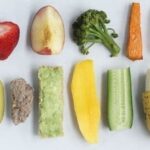Boost your heart health by incorporating these delicious and effective foods into your diet to naturally increase your HDL cholesterol levels.
Maintaining healthy cholesterol levels is crucial for cardiovascular well-being. While high LDL (“bad”) cholesterol is often the focus, having sufficient HDL (“good”) cholesterol is equally important. HDL cholesterol helps remove LDL cholesterol from your arteries, reducing the risk of heart disease. Diet plays a significant role in influencing your HDL levels. Fortunately, incorporating certain foods into your daily meals can be a delicious and effective way to naturally increase your HDL cholesterol.
Fatty Fish and Omega-3 Fatty Acids
Fatty fish are nutritional powerhouses, packed with omega-3 fatty acids, which are renowned for their heart-health benefits. These essential acids not only contribute to lowering triglycerides, a type of fat in the blood, but also play a role in increasing HDL cholesterol levels. Moreover, omega-3s can assist in reducing blood pressure and minimizing the risk of blood clot formation. For individuals who have experienced heart attacks, consistent intake of omega-3 fatty acids may even decrease the risk of sudden cardiac events.
The American Heart Association recommends consuming at least two servings of fatty fish per week to reap these benefits. Opt for cooking methods like baking or grilling to avoid adding unhealthy fats during preparation.
Excellent sources of omega-3 fatty acids include:
- Mackerel
- Herring
- Tuna
- Salmon
- Trout
A serving of grilled salmon, rich in omega-3 fatty acids, is an excellent choice to increase HDL cholesterol and support heart health.
Beyond fatty fish, you can find smaller amounts of omega-3 fatty acids in foods like walnuts, flaxseed, and canola oil. If considering omega-3 supplements or fish oil, it’s always wise to consult your doctor to determine the appropriate dosage for your individual needs.
Avocados: A Source of Healthy Fats and Fiber
Avocados stand out as a creamy, versatile fruit that offers a wealth of nutrients, including monounsaturated fatty acids (MUFAs). These healthy fats are key to heart health, and research indicates that the fiber content in avocados also contributes positively to cholesterol management. Specifically, regular avocado consumption has been linked to improved HDL cholesterol levels and enhanced the quality of LDL cholesterol, making LDL less harmful. Incorporating just two servings of avocado into your weekly heart-healthy diet can significantly contribute to reducing your overall risk of heart disease.
Instead of limiting avocados to guacamole, explore diverse ways to enjoy them. Add avocado slices to salads and sandwiches for a creamy texture and nutritional boost, or enjoy them as a simple side dish. For a healthier dip option, try guacamole with raw vegetables like cucumber or bell pepper slices instead of high-fat chips.
Avocado slices on whole-wheat toast provide monounsaturated fatty acids and fiber, both beneficial for increasing HDL cholesterol levels.
The monounsaturated fats in avocados, similar to those prominent in the Mediterranean diet, are a healthier alternative to saturated fats found in meats and many processed foods. Replacing saturated fats with MUFAs is a cornerstone of heart-healthy eating patterns.
Olive Oil: Liquid Gold for Heart Health
Olive oil, especially extra virgin olive oil, is another staple of the Mediterranean diet and a potent food for boosting HDL cholesterol. Rich in monounsaturated fatty acids and antioxidants, olive oil can help improve the function of HDL cholesterol, making it more effective at removing LDL cholesterol. Furthermore, extra virgin olive oil has been associated with a reduced risk of heart attacks.
Make olive oil your go-to fat source in the kitchen. Use it to sauté vegetables, creating flavorful and healthy side dishes. Whisk it with vinegar and herbs for a simple and heart-healthy salad dressing, replacing creamy, high-fat alternatives. You can also drizzle olive oil over cooked dishes, use it as a marinade base, or even use it instead of butter when basting meats or as a dip for crusty bread.
Using olive oil as a salad dressing or for cooking vegetables is a flavorful way to increase your intake of healthy fats and boost HDL cholesterol.
Nuts: Nutrient-Dense Snacks for Better Cholesterol
Almonds, walnuts, and other tree nuts are not only satisfying snacks but also beneficial for improving blood cholesterol profiles. While all nuts are calorie-dense, a small handful can provide significant heart-health benefits. Walnuts, in particular, are rich in omega-3 fatty acids, adding to their HDL-boosting potential. Studies have shown that walnuts can help protect the heart and may lower the risk of heart attack, especially for individuals with pre-existing heart disease.
Enjoy a handful of almonds or walnuts as a snack between meals, or add them to salads and yogurt for extra crunch and nutrition. Remember portion control due to their calorie density.
A handful of almonds is a convenient and nutritious snack that can contribute to increasing HDL cholesterol levels.
Whey Protein: A Dairy-Derived Boost
Whey protein, a component of dairy products, is gaining recognition for its potential health benefits, including its impact on cholesterol. Research suggests that whey protein supplementation can lower both LDL and total cholesterol levels, as well as blood pressure. Interestingly, whey protein may also contribute to increasing HDL cholesterol in some individuals.
Whey protein is readily available in powder form at health food stores and some grocery stores. It can be easily incorporated into smoothies or shakes for a protein and potentially HDL-boosting addition to your diet.
Lifestyle and Dietary Synergy
While incorporating these foods can significantly contribute to increasing your HDL cholesterol, remember that a holistic approach is most effective. To maximize the benefits, consider these complementary dietary and lifestyle changes:
- Limit Saturated and Trans Fats: Reduce your intake of saturated fats found in red meat, butter, cheese, and full-fat dairy products, as they can raise total cholesterol. Completely avoid trans fats, often found in processed foods, as they negatively impact overall cholesterol levels.
- Increase Soluble Fiber: Foods rich in soluble fiber, such as oatmeal, oat bran, kidney beans, Brussels sprouts, apples, and pears, are known to lower LDL cholesterol, and some studies suggest they may indirectly help improve the LDL to HDL ratio.
- Regular Exercise: Physical activity is a powerful tool for improving cholesterol levels, particularly for boosting HDL. Aim for at least 30 minutes of moderate-intensity exercise most days of the week.
- Maintain a Healthy Weight: Being overweight or obese can negatively impact cholesterol levels. Losing even a small amount of weight can have a positive effect on your HDL cholesterol.
Conclusion: Food as Medicine for HDL
Increasing your HDL cholesterol through diet is an achievable and delicious way to protect your heart health. By incorporating fatty fish, avocados, olive oil, nuts, and considering whey protein, you can take proactive steps towards improving your cholesterol profile. Remember that these foods work best within a balanced diet and healthy lifestyle. Consult with your healthcare provider or a registered dietitian for personalized advice on managing your cholesterol and optimizing your heart health through diet.
References:
- Tangney CC, et al. Lipid management with diet or dietary supplements. https://uptodate.com/contents/search. Accessed March 6, 2023.
- Your guide to lowering your cholesterol with therapeutic lifestyle changes. National Heart, Lung, and Blood Institute. https://www.nhlbi.nih.gov/health-topics/all-publications-and-resources/your-guide-lowering-cholesterol-therapeutic-lifestyle. Accessed March 8, 2023.
- Grundy SM, et al. 2018 AHA/ACC/AACVPR/AAPA/ABC/ACPM/ADA/AGS/APhA/ASPC/NLA/PCNA guideline on the management of blood cholesterol: A report of the American College of Cardiology/American Heart Association Task Force on Clinical Practice Guidelines. Journal of the American College of Cardiology. doi:10.1016/j.jac.2018.11.003.
- Prevention and treatment of high cholesterol (hyperlipidemia). American Heart Association. https://www.heart.org/en/health-topics/cholesterol/prevention-and-treatment-of-high-cholesterol-hyperlipidemia. Accessed March 6, 2023.
- Feather A, et al., eds. Lipid and metabolic disorders. In: Kumar & Clark’s Clinical Medicine. 10th ed. Elsevier; 2021. https://www.clinicalkey.com. Accessed March 6, 2023.
- Pacheo LS, et al. Avocado consumption and risk of cardiovascular disease in US adults. Journal of the American Heart Association. 2022; doi:10.1161/JAHA.121.024014.
- Eating an avocado once a week may lower heart disease risk. American Heart Association. https://www.heart.org/en/news/2022/03/30/eating-an-avocado-once-a-week-may-lower-heart-disease-risk. Accessed March 6, 2023.
- Amirani E, et al. Effects of whey protein on glycemic control and serum lipoproteins in patients with metabolic syndrome and related conditions: A systematic review and meta-analysis of randomized controlled clinical trials. Lipids in Health and Disease. doi: 10.1186/s12944-020-01384-7.
- AskMayoExpert. Hyperlipidemia (adult). Mayo Clinic; 2022.
- 2020-2025 Dietary Guidelines for Americans. U.S. Department of Health and Human Services and U.S. Department of Agriculture. https://www.dietaryguidelines.gov/. Accessed March 6, 2023.
- Final determination regarding regarding partially hydrogenated oils (removing trans fat). U.S. Food and Drug Administration. https://www.fda.gov/food/food-additives-petitions/final-determination-regarding-partially-hydrogenated-oils-removing-trans-fat. Accessed March 6, 2023.
- Mozaffarian D, et al. Dietary fat. https://uptodate.com/contents/search. Accessed March 15, 2023.
- Mahmassani HA, et al. Avocado consumption and risk factors for heart disease: A systematic review and meta-analysis. The American Journal of Clinical Nutrition. 2018; doi:10.1093/ajcn/nqx078.

